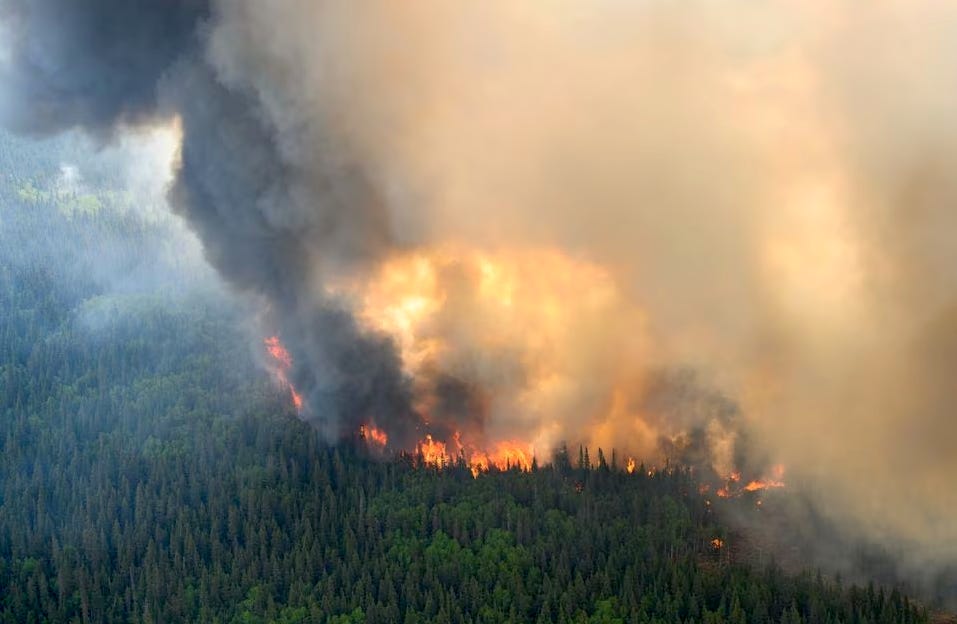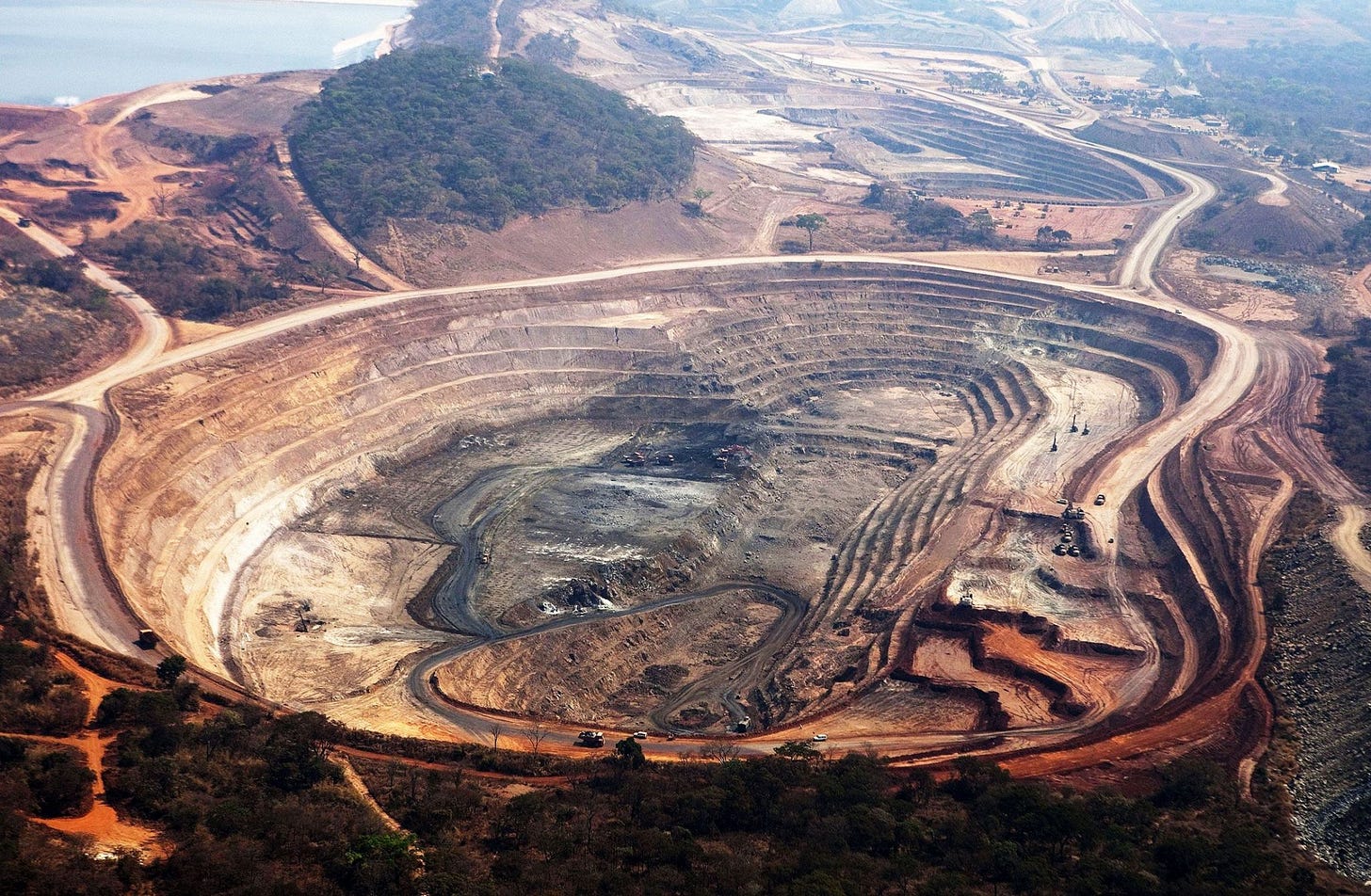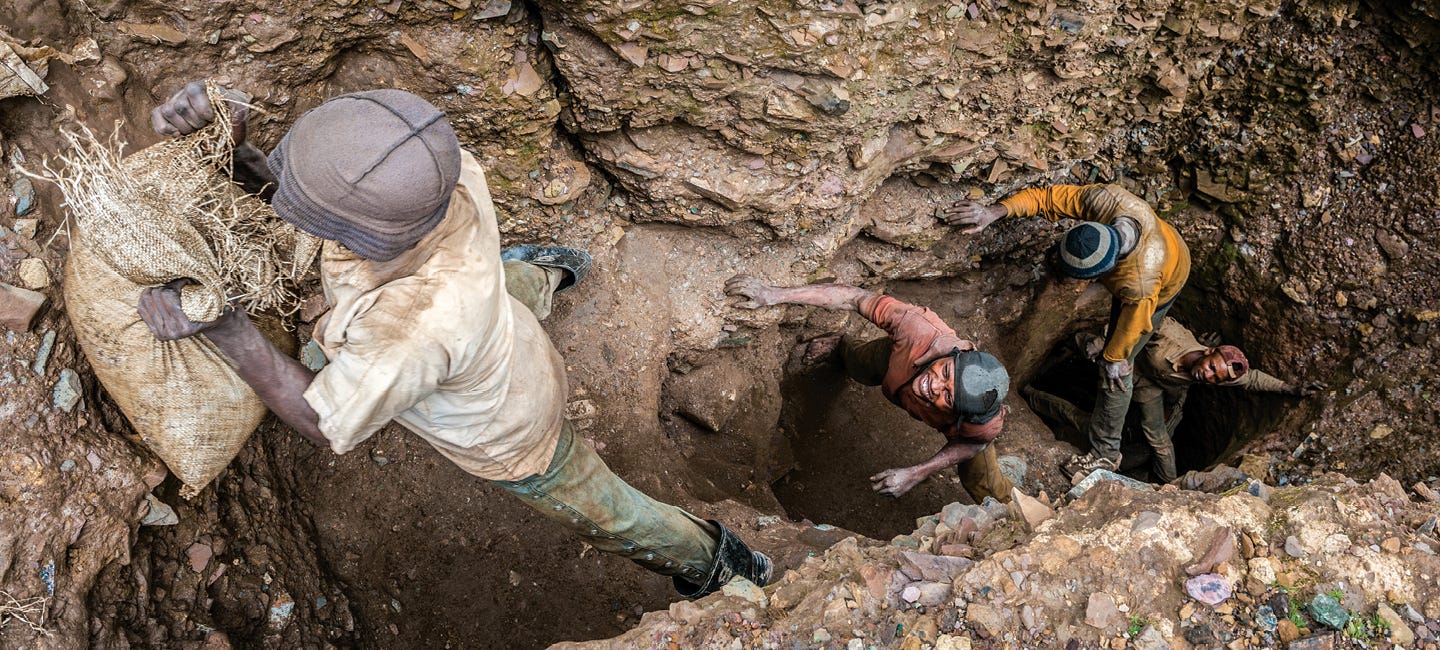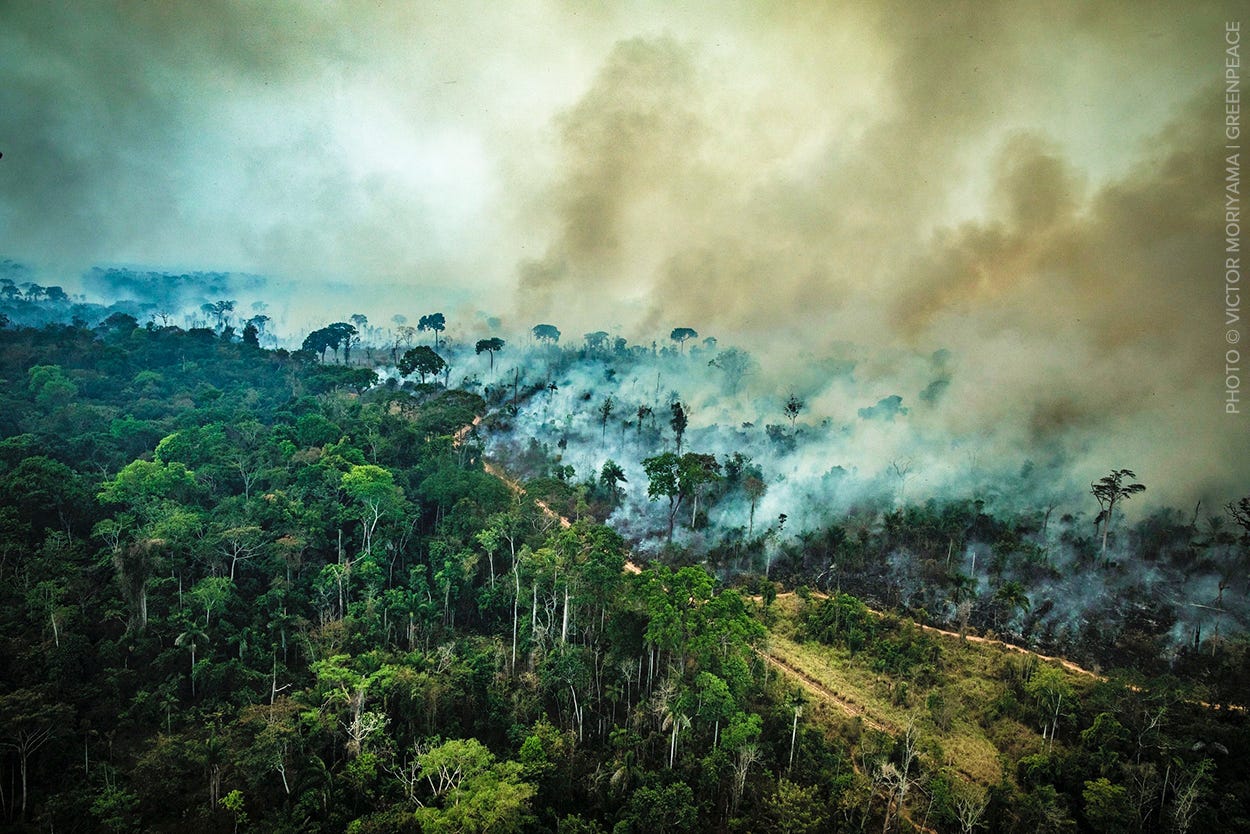
In The Economy We Need to Save Ourselves I wrote about economics, FDR’s Keynesian policies which lifted the United States out of the Great Depression, versus Milton Friedman’s Chicago School of laissez-faire capitalism, which resulted in voracious pigs at the feeding trough. In fact, since Reaganomics unleashed neoliberal capitalism, the “poorest” American on the annual Forbes richest 400 in 1982 had a net worth of $220 million and the “average” member a net worth of $670 million, adjusted for 2022 dollars. In 2022, getting on the Forbes 400 list required a minimum net worth of at least $2.77 billion and the average member enjoyed a net worth of over $10 billion, nearly fifteen times the 1982 average adjusted for inflation.
I pointed out that although the Keynesian model was far more humane, neither is a sustainable path forward to deal with the accelerating #ClimateCrisis, because both are based on endless growth and consumption, which are breaking down an inhabitable Earth at an ever accelerating rate. Ice-free Arctic summers are now inevitable by the 2040s, and 100 million Americans have been breathing smoke from record setting Canadian wildfires for the last month. The fires have burned nearly 18 million acres at last check, this before wildfire season has officially begun. The World Health Organization estimates between 2030 and 2050, climate change will cause 250,000 additional deaths per year, from malnutrition, malaria, diarrhea and heat stress, and that by the end of the century that figure could reach more than nine million brutal climate-related deaths each year.

We’re in a climate emergency now, the word crisis is no longer appropriate. The strongest possible actions need to be taken as quickly as possible. Delay is death.
The Green New Deal
In order to understand Degrowth, we also must also understand the Green New Deal, a term coined by journalist Thomas Friedman in 2007. Degrowth and the Green New Deal share common ground, as did Biden’s Build Back Better plan, watered down to the deeply compromised although significant Inflation Reduction Act (IRA), which I wrote about here. The Green New Deal has never come close to being legislated as a comprehensive plan, let alone implemented. Like FDR’s New Deal, the Green New Deal seeks to create millions of new jobs by repairing, strengthening and upgrading dated, failing infrastructure. It seeks to provide access to nature, clean air and water, healthy food, a sustainable environment, and community resiliency for all. The goals of the Green New Deal align well with Degrowth, but Degrowth goes a couple of important steps further. The Green New Deal’s goals would be accomplished through investments and actions of the federal government.
Green New Deal Goals
Provide investments and leverage funding to help communities affected by climate change.
Repair and upgrade existing infrastructure to withstand extreme weather, and ensure all bills related to infrastructure in Congress address climate change.
Invest in renewable power sources.
Invest in manufacturing and industry to spur growth in the use of clean energy.
Build or upgrade to energy-efficient, distributed, and smart power grids that provide affordable electricity.
Upgrade all existing buildings and build new ones that achieve maximum energy efficiency, water efficiency, safety, affordability, comfort, and durability.
Support family farming, invest in sustainable farming, and build a more sustainable and equitable food system.
Invest in transportation systems, namely zero-emission vehicle infrastructure and manufacturing, public transit, and high-speed rail.
Restore ecosystems through land preservation, afforestation, and science-based projects.
Clean up existing hazardous waste and abandoned hazardous waste sites.
Identify unknown sources of pollution and emissions.
Work with the international community on solutions and help them achieve Green New Deals.
Build Back Better, Ambitious But Undermined
President Biden didn’t embrace the Green New Deal. I suspect he saw it as a political impossibility. Instead, he proposed Build Back Better and a “Clean Energy Revolution.” Build Back Better had a broad range of goals, but most importantly for the purpose of this article $555 billion for clean energy and climate change provisions. In spite of being moderate compared to the Green New Deal, it was still undermined by the political intransigence of the Republican Party, coal industry lackey Joe Manchin, and the indecipherable Kyrsten Sinema, who appears to be owned by the pharmaceutical industry. This resulted in the far weaker IRA.
The Green New Deal aspires to net-zero greenhouse gas emissions and 100 percent clean, renewable energy sources by 2030. Biden's aims for that goal far later, by 2050. Conservatives have been critical of both plans. The Green New Deal could cost between $51 and $93 trillion to implement, according to conservative think tanks, which I don’t trust. At all. According to the U.S. Government Accounting Office, federal disaster assistance from climate change which was at least $450 billion from 2005 to 2019 will ramp up more than $500 billion in economic loss to the United States alone each year by 2090, as reported in a 2019 study by EPA environmental scientist Jeremy Martinich, and Allison Crimmins, Director, U.S. National Climate Assessment.
Unfortunately, IRA goes nowhere near addressing the root causes of #ClimateChange, fundamental neoliberal economic policy which feeds on social and economic inequality. It doesn’t attempt to reduce consumption, or revive democracy by reigning in billionaires and corporate power, which have driven us to the precipice. The Green New Deal, while more comprehensive, falls short in these areas, too.

Capitalism, particularly neoliberal capitalism and its resulting increased consumption, have pushed the planet to the brink. Nibbling at the edges of the problem is woefully inadequate. Climate scientists are stunned by the melting Arctic ice sheet, for instance, which is decades ahead of original models. The Antarctic ice sheet is now melting as well. The oceans are currently experiencing an unexpected and shocking temperature rise in a matter of months, not years. Scientists are unsure if this is related to the return of El Niño, or if it could be an entirely new tipping point they were unaware of.
The truth is without significant, perhaps profound changes to how we live in so-called advanced industrial nations, we’re going to fail to halt global warming at an adequate pace with current efforts, and failure will lead to a crash that none of our sadly popular apocalypse movies can prepare us for. Build Back Better was compromised by political palatability, not doing what is necessary, because politicians are beholden to their corporate masters, and voting citizens who wish to eat double cheeseburgers, admire the Kardashians, and drive around in 5000 pound SUVs forever, electric or not. Many of the rest of us who are aware, are simply trying to stay alive in two or more jobs, because the Forbes 400 are taking all the wealth.
We need to dismantle billionaires and accept that we commoners also need to be prepared for changes, as we adjust to living in a gentler way on the planet. We can sacrifice again, as we did during WWII, for an ultimately a better future. We will not save the planet merely by driving electric versions of SUVs that look like the solution in slick advertising spots, banning gas stoves, and wood fired pizza in restaurants.
We aren’t being told the truth. Politicians don’t get elected by telling the truth. You know who tells the truth? Scientists.
Degrowth, Driven by Science
Degrowth is driven by data, real measurements of our complex interwoven planet. It’s not political. It’s reality.
As a matter-of-fact, 11,000 scientists signed an open letter unequivocally stating that planet Earth is in a climate emergency and called for a “shift from GDP growth” toward “sustaining ecosystems and improving human well-being.”
Degrowth recognizes a simple truth. The planet is finite. Infinite growth is an impossibility on a finite world. Reducing our consumption and ever-growing energy demands is key, if we are to have a future. This is one of the fundamentals the Green New Deal, Build Back Better, and IRA miss. All the batteries in the world will be insufficient if we don’t bring our consumption under control. In addition to building out renewables, we must reduce our energy use. Every breath of Canadian boreal forest smoke-tinged air reminds me. Degrowth recognizes economic growth without destruction of nature is impossible, and the destruction of nature guarantees our own destruction. It recognizes the rich will have to make adjustments most of all. They drive a wildly disproportionate amount of climate change, and all wealth inequality. They owe us.

Pretending metals such as lithium are going to sustain our indulgent Global North lifestyles is a sham. Batteries depend on mining copper, nickel, cobalt and rare minerals as well, in lands where we exploit human beings. Metals and minerals will never adequately replace the bubble that was fossil fuels, anyhow, and mining will beget yet more environmental harm. We must mine as little as possible in weaning off fossil fuels. Those who say there are endless metals and minerals wish to mine our dying oceans as well, for profit, not humanity. It’s a sham, so billionaires can become trillionaires. Mining causes enormous ecological destruction, it’s historically proven, (ignore claims that new technology will make it nicey-nicey), and drains and pollutes precious groundwater even as historic drought increases. One metric ton of lithium requires 500,000 gallons of water to process. As usual, it destroys the cultures and lives of the indigenous and poorest. Read about a lithium mine here, Thacker Pass in Nevada, a cornerstone of Biden’s “Clean” Energy Revolution. First we committed genocide on First Nation people, then we put them on reservations deemed of no value. Oh sorry guys, turns out something is there we want now. Here, have a job in the lithium industry while we destroy you again.

Whatever happened to the word conservation? I remember that as a kid.
Degrowth recognizes poor, struggling nations. The Global South has been forced to destroy its own environment because of militarized capitalism. We have backed dictatorships and supported murderers to become a rich.
Capitalism converts rainforests to cheeseburgers. Literally.

Degrowth recognizes that nations struggling to achieve reasonable living standards represent a serious threat to reaching net-zero carbon. This is practical even to those who hate dark skinned people, which is significant in a country where a Trump, DeSantis, Abbott and Proud Boys can rise. Poor nations rely on fossil fuels to build their economies, just rich ones do. If the Global North achieves net-zero in a timely way, which is highly questionable, we will still be in mortal danger unless poor nations can do so as well. This is why Degrowth favors forgiving debt to poor nations. We must take our foot off their necks. They already paid us in the form of stolen natural resources and blood. The US alone has done trillions of dollars of damage to poor nations with its carbon emissions. It’s not just a moral issue, it’s a survival issue for all of us.
The Five Fundamentals of Degrowth
1. Abandon GDP (gross domestic product) as a measure of progress. GDP is defined as the total monetary or market value of all the finished goods and services produced within a country’s borders in a specific time period. Economic anthropologist Jason Hickel, a force in the Degrowth concept, suggests GPI, a Genuine Progress Indicator which would account for negatives of growth, such as pollution and poverty. We must account for the price of growth, not just profit as a handful run to the bank.
GDP fails to account for sustainability: increasing GDP is only sustainable if it doesn’t exploit the environment and deplete natural resources beyond their capacity to recover.
GDP fails to account for pollution: GDP doesn’t account for environmental harm, such air pollution, water pollution, the economic costs of climate change disasters, plastic islands in the ocean, or PFAS chemicals in our bodies. In fact, plastic manufacturing is growth as far as GDP is concerned.
GDP fails to account for income inequality: GDP doesn’t account for income distribution. The gulf between rich and poor is unconscionable. Some are privileged to fly private jets 20 minutes for dinner in another city, while others starve.
GDP fails to account for human development and opportunity: GDP fails to measure access to good health care, educational opportunity, and the opportunity to achieve reasonable wealth and security.
GDP fails to account for happiness and quality of life: GDP doesn’t measure mental health, life expectancy at birth, the degree of inequality across society, or particularly in the US, the cost of mass shootings. Gun sales are measured in GDP, though.
2. Scale down throughput and eliminate waste. Throughput is the amount of a product or services a company can produce and deliver within a period of time. Our machines and computers have enabled harvesting the planet at an unsustainable rate. Reducing throughput would reduce energy demand, destruction of ecosystems, and improve the probability of success in a renewable energy transition. We must:
Legislate progressive taxes on resource use, emissions and waste, or impose caps on these activities and tighten them each year.
Require extended warranties on all products to encourage longer lifespans.
Enact laws against planned obsolescence and legislate a right to repair laws.
Prevent supermarkets food waste through fees and fines, and ban food waste from landfills.
3. Shorten the work week to reduce our carbon footprint. This would also encourage the distribution of work equally to promote full employment. Mandating a living wage policy would make shorter hours possible, and universal basic income would assist small businesses.
A shorter work week would shrink carbon footprints, create better employees, lower unemployment, and improve mental health.
Pressure for growth would be reduced. Currently, as productivity increases people are laid off, forcing more growth to create new jobs. Ever-increasing productivity is unsustainable and inhuman.
Jobs could be created without the need for growth by shortening the working week and distributing work more equitably.
Focus on growing clean jobs. Dirty jobs would be replaced with jobs in clean energy, health care, education, housing, mass transportation, internet infrastructure, and local food production.
Promote regenerative agriculture: Regenerative agriculture focuses on improving the health of soil, which has been degraded by heavy machinery, fertilizers and pesticides. With current practices, there may not be enough fertile soil left to feed the world within 50 years. Regenerative agriculture can improve farmers’ incomes, cut emissions and restore soil health. We must also promote sustainable local food production, increased vegetarian food production, and fair agricultural employment conditions and wages.
Environmental restoration jobs: With problems come opportunities. Jobs lost in dirty industries could be replaced with toxic site cleanup, raising urban blight and creating green spaces. We could increase jobs in ecological and biodiversity restoration, conservation, and park maintenance.
4. Expand social services to support good lives without high levels of income. High-quality public healthcare and education should be available to everyone, not centers of corporate profit.
Rent and public housing: Enact rent controls, build affordable public housing, and efficient public transportation. These projects and policies would further reduce the need for high incomes and consumption.
Create more public parks and recreation: Improved access to public parks and recreational facilities would improve both physical and mental health.
5. Redistribute wealth. Billionaires are the primary drivers of climate change and collapse of the environment from both their business strategies and hoarded personal wealth. They claim to be job creators, but the jobs are based on consumption and workers are routinely abused and not paid living wages. We must tax the value of inflating billionaire assets, like stock and property, currently impossible unless they sell, yet a primary source of their income, without actually working. We also must raise the pittance of taxes they pay on what is considered their income. In 2018, Elon Musk paid no federal income taxes. This is just one egregious example, there are many more here. Billionaires are a drag on the rest of society.
Accessing this wealth, hundreds of billions of dollars, would help:
Fund investments in renewable energy, public programs, education, and healthcare.
Provide funds for a universal basic income.
Reduce working hours and raise wages in essential public services such as health and education.
Enable debt cancellation for workers and small businesses in the global south.
While the Green New Deal and even IRA take some steps in the right direction, without demanding the additional ideas embodied in Degrowth, I fear we will fail in our effort to slow and halt global warming in time to save civilization. Every delay, every compromise, means people dying needlessly. Most of my articles attempt to point out we have a behavioral problem that has driven us to this point. Technology alone will not save us, it’s what got us here, along with greed.
Many of the material objects we have been taught to desire are unnecessary and become prisons in the form of longer working hours. In America, the car is the poster child of this, perhaps the most destructive invention ever. It has enabled us to flee each other, created mindless urban sprawl, and boggling pollution from manufacturing, right to the end of its life cycle when the carcass ends up in a dump. It is marketed as freedom on the open road, roads made of concrete, another enormous contributor to global warming. A car is not freedom. It’s payments, stress in traffic, insurance premiums and repairs, and it’s inefficient, electric or not compared, to mass transit. Possessions are used as a false measure of social worth in society. The car is second only to tasteless McMansions.
Similarly, the common hamburger, an icon of the American dream, is destructive. I quit eating beef ten years ago, and fast food long before that. Once again, items we are taught to desire, that are literally addictive, pushed by the pimps of advertising. This is why Degrowth asks for the end of adverting as well. It is nothing more than state sanctioned brainwashing to grease the wheels of unsustainable consumption.
All of this has led to more psychosis, the shameful example in my country, mass shootings. The culture we have created is sick at its core. Racism is in part fueled by economic disparity. People of color are used as scapegoats for the actions of the wealthiest. I believe Degrowth can ensure not just a future for us on this Earth, but create happier, healthier societies as well.
By shifting our focus from an economy based on materialism to one that emphasizes the value of time, surely our most valuable asset, we can reduce our impact on the planet to a sustainable level. By changing our economy from one of extraction to care taking, we can save our future.
The Earth can provide good lives for all of us, if we learn less is more.



Degrowth originated in 1972, but didn't get much traction outside of Europe for decades. Your professors must have been pretty "tuned in!" I was unaware of it myself until a couple of years ago, but it resonated with what should be obvious, the Earth is finite. It also connects wealth disparity all around us, abuse of the global south and the environmental crisis we're in. The word degrowth itself has a negative vibe. Some have suggested "post-growth." I agree with you, it needs to be properly communicated, intellectual, scientific discourse isn't persuasive for most. Now time is a huge problem, indeed, 45 years wasted. I will likely come back to the subject again. I did a bit, at the end of the article below, imagining a bit of a degrowth life. Thank you for sharing your thoughts.
https://geoffreydeihl.substack.com/p/the-illusions-of-fossil-fuels
Betsy, those who deny reality, or simply don't have a clue of the problem we face will find my writing depressing, or dismiss it from fear. People calling out the system for its destructiveness face the challenge of persuading minds. Some may be generally liberal people that aren't getting the truth from mainstream news sources. Some may be hard deniers, who can be enlightened. Occasionally, even a few Nazis and KKK members wake up. The "New Green Deal" falls far short of course, further tearing up the planet and contributing to the 6th mass extinction. Reduction of consumption must be a topic. "Stuff" is a trap, hardly a new thought, but certainly one we have to embrace. It comes down to changing culture and improving education, but we're out of time for those goals, and we have enormous power that wishes to maintain the status quo. You are welcome to share this post or any of my writing if it's helpful. I just want to contribute to the greater good. Thank you.